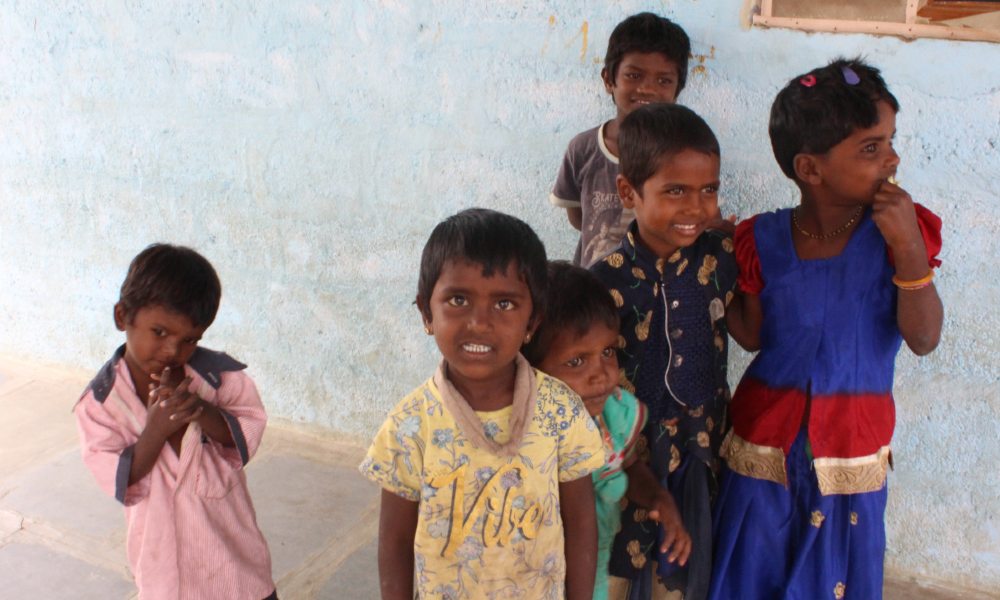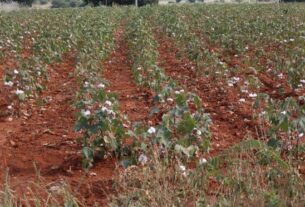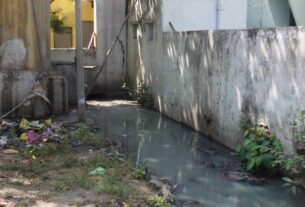As per the government’s Poshan Tracker, the Women and Child Development Ministry there are over 14 lakh severely malnourished children in the country. India ranks 111th out of the 125 countries in the 2023 global hunger index.
Devdurga, is one of the most backward taluk in Karnataka, illiteracy, child marriage and malnourishment are the biggest problems of the taluk.
Munni is the mother of two. Her son Chauhan was born when she was 17 years old. Munni said she was underweight at that time which impacted Chauhan’s birth weight also. He was born less than normal birth weight, weighing only around 1 and a half kgs. Chauhan is now 2 years old. They live in a small village called Yalladoddi Thanda in Devdurga. The people from this Thanda belong to Lambani community. Lambani community also known as Banjaras were nomadic tribes who came from Afghanistan to Rajasthan and have now spread themselves across Rajasthan, Andhra Pradesh, Karnataka, Gujrat, Madhya Pradesh and Maharashtra.
Chauhan is 8 kgs and falls under extremely low birth weight according to WHO norms. The child of his age should weigh around 11-14 kgs. Munni Chauhan said “My son is two years old and weighs 8 kgs. When he was born, he weighed only 1 and a half kilos. I got married very early, we are very poor and both my husband and I work as laborers in agricultural fields. It is very difficult for us to get work sometimes; we work for low wages and cannot afford good food. And we do not have enough money to take him doctor.”
Yalladoddi Thanda has 110 children out of which 9 children are severely malnourished and 7 are moderately malnourished according to the data given by Public Health Center for the year 2023. The doctor of taluk hospital said that in a week they register around 8-9 cases of malnutrition out of which 1 child will be severely malnourished.
Priya who has come with her grandfather to the Taluk hospital is suffering from weakness and gastro-intestinal diseases. The doctor said she suffers from malnutrition. She is 8 years old and weighs 12-13 kgs only, a child of her age should weigh around 8 kgs more than her present weight.
According to the human development report, Devdurga is one of the most backward taluks in terms of the human development index. The doctor of the Taluk hospital said that the staple food of the villages is jowar and they eat it with anything available like tomatoes or simply onions and the meal lacks all the important nutrients which is needed for a healthy diet. The Taluka health and family welfare data of Devdurga till 31 Jan 2024 suggest that, from around 31,600 children between the age of 0 to 6, 7541 moderately weighed and 112 are severely malnourished children.
It is the lunchtime in Yalladoddi Thanda and school and Anganwadi is ready to feed the children under the PM Poshan Scheme. The teachers and helpers are ready to feed the children. It’s an effort to tackle the high level of malnutrition in the region. The children finish their food happily in the Anganwadi. But struggles to have the other two meals back at home.
Dr Shivraj Taluk Hospital, pediatrician said – “Mostly in Devdurga, parents work as laborers and don’t have much time to look after their children. They come in the evening and have no clue what the child has eaten the whole day. When they return from work, they give them a chip packet or junk food which satisfies their hunger but doesn’t add any nutritional value. India ranks 111th out of the 125 countries in the 2023 global hunger index.
The experts highlight the drawbacks of PDS and the mid-day meal scheme which are the main interventions done by the government to tackle the problem of malnutrition.
“There is a disproportionate focus on cereals which provide them energy but lack essential nutrients. We need a balanced diet but in most of the schemes whether it’s a Public Distribution System, mid-day meal or the ICDS all the vulnerable groups like children, adolescents and pregnant ladies are supposed to receive a balanced diet end up receiving mainly cereals. Though it may give them energy, it lacks nutrients like protein, vitamins and minerals and is not able to resolve the fat requirements. All we see is it is very cereal-centric.”
The expert also highlights that-“there is a need for more inclusion and diversity in policy making. More reservations and more affirmative action like access to education, employment generation and revise the minimum wages. The leave policies, labor policies and caste prejudices need to be addressed then certain sections that are always marginalized and remain to be poor will be able to get out of the circle. Also identifying the best sources of nutrition by talking with communities will be a sustainable intervention than top-down corporate-led packaged food kind of interventions” she added.
Munni said she wants to give her children a better future by providing them good education unlike her who got married at very a small age. She said she wants both of her children to become doctors and take care of her community people who are still in a vicious cycle of poverty and are often looked at as a backward class in the society.




